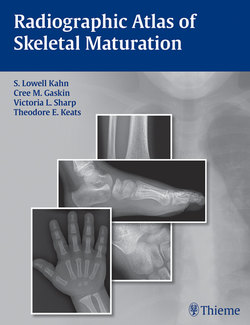Описание книги
The value of this atlas is to provide appropriate standards for the maturing skeleton {that} will enhance accuracy and ease interpretation – From the Foreword by Theodore E. Keats, MD, Former Alumni Professor of Radiology, University of Virginia Health Sciences Center <br></br>When dealing with the maturing skeleton and its many complex growth alterations, physicians are constantly faced with the question: Is this image normal? The <em>Radiographic Atlas of Skeletal Maturation </em>succinctly answers that question by providing a comprehensive set of male and female reference images for every age and body part. This allows physicians to quickly hone in on normal ranges for the specific case they are reviewing–particularly useful when called upon to read a pediatric skeletal radiograph in the emergency room or while on call.<br></br><strong>Special Features</strong><li>Access to nearly 2,300 high-quality images that provide instant reference to normal views of the skeleton at every developmental milestone-available in both the text and accompanying DVD</li><li>Multiple projections at every age, sex, and body part combination so that the user can match the reference points in the book to the case at hand and arrive at a solid clinical interpretation (e.g., is the small fragment of bone observed in a 7-year-old boy with an acute elbow injury a fracture or a normal developing ossification center?)</li><li>Practical text layout organized by gender and body part that provides quick access to images of normal development at any given age</li><li>A software virtual skeletal survey demonstrates images of younger and older individuals and crystallizes the subtle variations in growth patterns</li><li>Powerful software package with advanced image enhancement tools allows optimization of atlas image details for greater clarity. Compatible with numerous image formats (including DICOM) allowing viewing and editing of outside images</li><li>Convenient growth charts included in the book and DVD for </li><br></br>This unique resource, with its vast collection of print and DVD images of normal progressive skeletal development, gives physicians the full range of comparative information they need to interpret pediatric skeletal radiographs in any clinical setting. It is the reference standard for radiologists, pediatricians, orthopedists, emergency room physicians, internists, rehabilitation physicians, and training physicians who are called upon to review a pediatric radiograph and confidently make a diagnosis.
